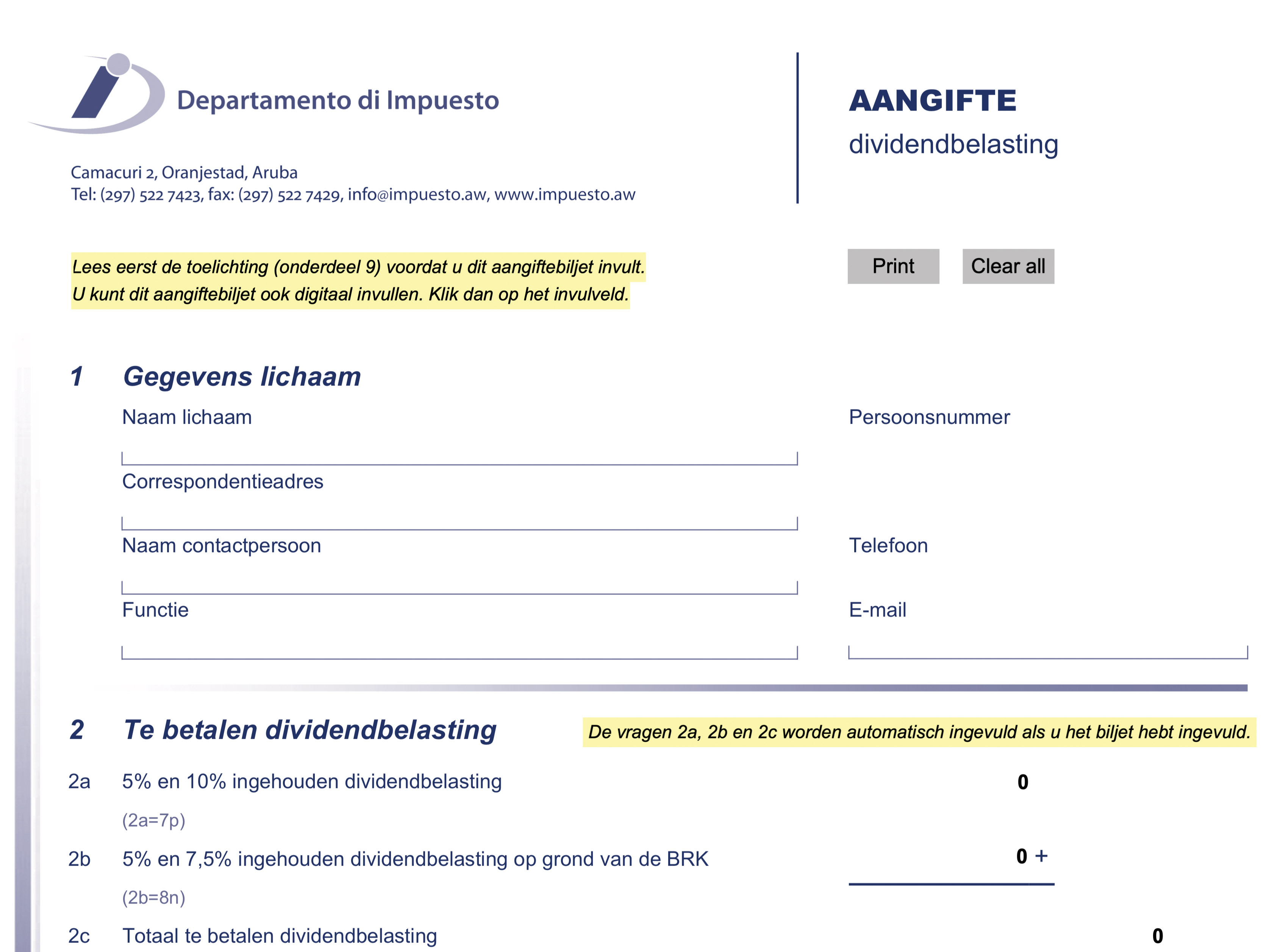
The current state of turnover tax in Aruba could be qualified as complicated at best. Following the introduction of the turnover tax (BBO) in 2006, a health levy on revenues (BAZV) was introduced in 2014 followed by the introduction of the crisis levy on revenues (BAVP) effective from 1st of July 20181.
Recently, the Aruban government has announced that it is working together with the International Monetary Fund (IMF) on a tax reform in Aruba. The prime minister has stated that the focus of the government will shift from direct taxes to indirect taxes.
Indirect versus direct
Indirect taxes are those that are not paid directly by the taxpayer to the government but are collected by the government through an intermediary (typically businesses), whereas direct taxes refer to taxes that are paid directly by the taxpayer to the government such as personal income tax or corporate income tax. An example of an indirect tax is the turnover tax or custom duties. Personal income tax or corporate income tax are examples of direct taxes2.
The decision of the Government of Aruba to shift from direct to indirect tax is not unexpected, since this is a trend that can be observed globally and it is endorsed by the IMF and the Organization of Economic Cooperation and Development (OECD). The arguments listed in favor of this shift are the opportunities granted by indirect taxes to shift the burden of collection from the government to business owners and the reduction in the costs of doing business for entrepreneurs, since indirect taxes can be shifted to consumers, whereas direct taxes are expenses largely absorbed by businesses that increase the costs of doing business in a country3. Higher costs of doing business can negatively impact investments and consequently affect economic growth in a country4.
“This choice can be influenced by different factors such as the market in which the entrepreneur operates”
Be ready for Changes
Changes in taxation, especially indirect taxation, will impact different aspects of your business. Effectively implementing legislative changes in your business requires a proactive approach to the operational, financial and technical impact of a legislative change. In other words: get your business ready for change.
The operational Impact
Turnover taxes are levied on the revenues earned by businesses in Aruba. The presence of a taxable event is largely driven by the determination of the place of supply. Only when Aruba is deemed to be the place of supply there will be a taxable event for BBO, BAZV and BAVP purposes. This means that the supply chain of a business will impact the indirect tax consequences of a business. In light of legislative changes an entrepreneur with a proactive approach to tax management will review from a tax perspective whether the current supply chain of the business can be optimized. A change in inventory policy or transportation terms and conditions could significantly impact the turnover tax consequences of a transaction (sale).
The financial Impact
One of the arguments for the shift towards indirect taxes is that it represents a lower cost of doing business in Aruba, since the tax burden can be shifted to the consumer. However, from a business perspective the entrepreneur must choose whether or not to fully shift the effective burden of taxation to the consumer. Based on current turnover tax legislation the entrepreneur may choose to fully absorb the tax burden or to partly or fully shift the effective
tax burden to the consumer. This choice can be influenced by different factors such as the market in which the are being provided, and the limitations of the current IT-systems. A proactive entrepreneur will proactively analyze the market in
which he or she operates to determine the best course of business in light of a legislative change.
More importantly, a proactive approach gives the entrepreneur insight into the effective tax burden for the company, and hence increased business expenses, that can be expected following a legislative change. Adopting a proactive approach enables the entrepreneur to make timely decisions to mitigate any adverse financial effects a legislative change may have.
The technical Impact
Currently, Aruba has three different indirect taxes on revenues: the BBO, BAZV and BAVP. Each one has its own legislation and implementation requirements. The BBO and BAVP don’t have to be mentioned on an invoice, for example, but it is mandatory to mention the BAZV amount. Furthermore, as mentioned before, an entrepreneur may choose to what extent he shifts the effective tax burden to the consumer. The practical implementation of this choice is dependent on the available technical resources of a company. If the implemented software cannot handle the mandatory or desired requirements for invoices, this could have an impact on the ability of the entrepreneur to (fully) shift the effective tax burden to the consumer. Hence, the decision of the entrepreneur is limited by the software/IT systems capabilities in a business. A proactive entrepreneur evaluates in a timely manner whether the available technical resources are able to sustain the implementation of the desired taxation outcome.
Final Remarks
In light of the coming legislative changes, now is the perfect time to evaluate whether your current approach to tax is adding value to your business. Adopting a proactive approach, allows businesses to implement tax efficient policies, especially when adapting to legislative changes. Furthermore, being proactive means that you are in control of your tax matters and able to prevent unforeseen and unwanted tax consequences for your business.
1In this article, a reference to turnover tax refers to BBO, BAZV and BAVP.
2https://www.overheid.aw/actueel/nieuws_235/item/imf-helpt-aruba-met-fiscale-hervormingen_35977.html
3Although the economic merit of these arguments can be debated that goes beyond the scope of this article.
4IMF Country Report no 17/155, June 2017, http://www.oecd.org/eco/labour/49421421.pdf.
